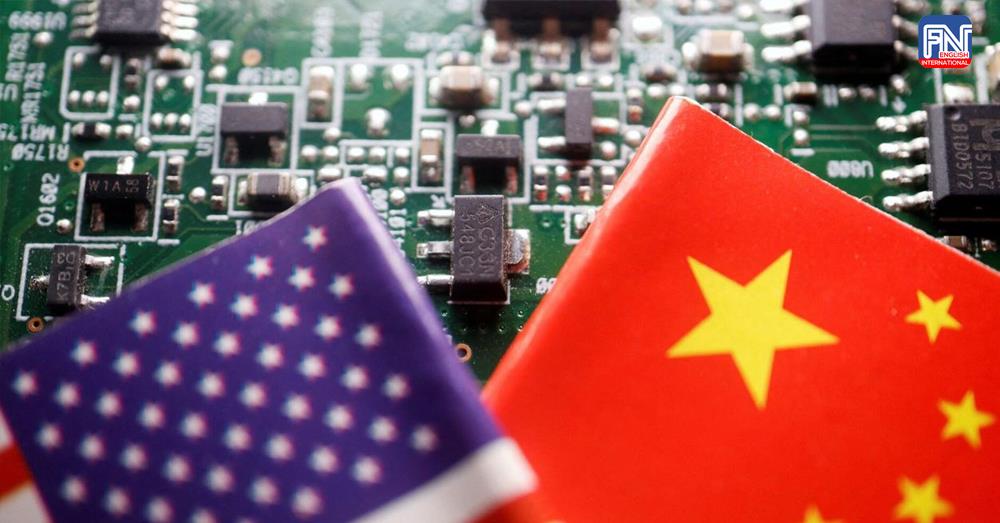SINGAPORE, July 18 (Reuters) - Chip stocks in Asia tumbled on Thursday while their European counterparts got off to a tentative start after a news report that the United States was considering tighter curbs on exports of advanced semiconductor technology to China.
Among the worst hit in Asia were shares of Taiwan Semiconductor Manufacturing Co (TSMC) (2330.TW), opens new tab, the world's largest contract chipmaker, which has shed roughly T$1.7 trillion ($52.13 billion) in market value over two days.
Remarks from U.S. Republican presidential nominee Donald Trump that Taiwan should pay America for its defence added to the wave of bad news and sent shares of TSMC down 2.4%.
In its earnings results on Thursday, TSMC said it expects third-quarter revenue to surge by as much as 34% from a year earlier, after posting a quarterly net profit that beat market expectations.
Other technology behemoths in Asia similarly suffered losses, with South Korean memory chipmaker SK Hynix (000660.KS), opens new tab sliding 3.6% and Japan's Tokyo Electron (8035.T), opens new tab slumping 8.75%.
The Global X Asia Semiconductor exchange-traded fund (3119.HK), opens new tab, which lists SK Hynix, Tokyo Electron, TSMC, and Samsung Electronics among its major holdings, fell 1.74%, reducing gains for the year to 16.7%.
Over in Europe, the STOXX 600 index (.STOXX), opens new tab rose 0.2%, though the technology sub-index (.SX8P), opens new tab fell to a six-week trough and last traded 0.37% lower.
The Bloomberg News report published during Asian trading hours on Wednesday said President Joe Biden's administration was weighing a measure called the foreign direct product rule that allows the U.S. government to stop a product from being sold if it was made using American technology.
That would potentially mean restrictions on companies such as Tokyo Electron and the Netherlands' ASML (ASML.AS), opens new tab.
ASML shares ticked up 0.3% on Thursday, reversing some of its more than 10% decline in the previous session despite releasing forecast-beating second-quarter earnings on the same day that showed a rise in artificial intelligence-linked bookings.
Washington's protectiveness towards the U.S. semiconductor manufacturing industry, which it views as strategically important for competing against China, has raised increasing concerns for investors.
Those concerns overrode the strong recent earnings releases from ASML, said Kang Jin-hyeok, an analyst at Shinhan Securities in Seoul, who also noted that ASML's heavy sales to China maket it a target of the proposed U.S. curbs.
"It seems macro and geopolitical factors played a bigger role than fundamentals," said Kang.
China accounted for about 49% of ASML's lithography system sales in the second quarter and represents about 20% of its order backlog.
TSMC said in its first-quarter earnings report that 69% of its revenue was from customers based in North America and 9% from China. Similarly, a March corporate filing from SK Hynix stated 31% of its sales came from China last year.
The Biden administration has moved aggressively to curb Chinese access to cutting-edge chip technology, including sweeping restrictions issued in October to limit exports of artificial intelligence (AI) processors designed by firms including Nvidia (NVDA.O), opens new tab.
The latest wrinkles in Sino-U.S. relations have sped up what appeared to be initial signs of investors' rotation from Big Tech stocks into smaller value ones, on the view that lower U.S. rates will benefit smaller companies.
The global AI boom has driven a blistering rally in tech stocks this year that has surpassed records, with the Nasdaq (.IXIC), opens new tab up 20% to date, while the S&P 500 (.SPX), opens new tab has surged 17%.
"Positioning had become very extreme in the semi-conductor/AI space and the import curb comments catalysed a de-risking event," said Jon Withaar, who manages an Asia special situations hedge fund at Pictet Asset Management.
